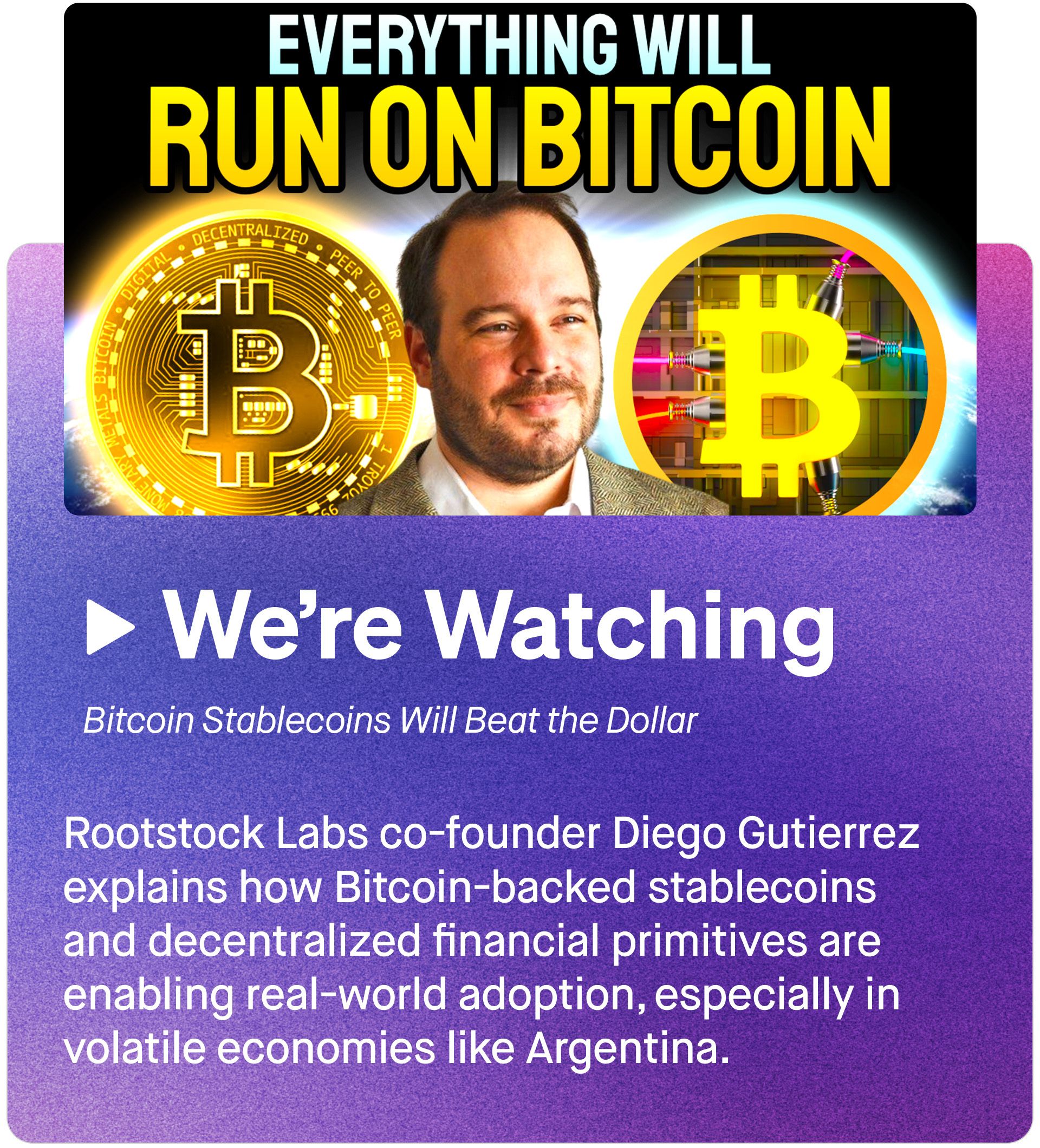- The Breakdown
- Posts
- 🟪 Will crypto be judged on substance or form?
🟪 Will crypto be judged on substance or form?
You can put lipstick on a pig...


Will crypto be judged on substance or form?
The thing about pancakes is that they’re really just cake: flour, eggs, sugar, and butter, topped with more sugar.
But because they’re flat and branded as breakfast, it’s socially acceptable to eat them in the morning.
This is kind of weird: Even your anything-goes dad wouldn’t serve you leftover birthday cake for breakfast, but he wouldn’t think twice about making you pancakes.
Lawyers and accountants recognize this as a question of substance vs. form: The form of pancakes is breakfast food, but the substance is dessert.
In the Roman Storm trial, for example, the prosecution asked jurors to ignore the form of Tornado Cash — non-custodial, immutable smart contract code — and instead focus on the substance of what it enabled: money laundering.
The economic reality and true intent of an arrangement, they essentially argued, matter more than the technical form it takes.
In short, prosecutors accused Storm of using a technical innovation to cleverly sidestep the law.
This is what the rest of crypto is often accused of, too.
In substance, skeptics say, tokens are stocks, protocols are companies, labs entities are c-suites, staking yields are dividends, token burns are buybacks, airdrops are sometimes IPOs, DAOs are general partnerships, and stablecoins are bank accounts.
It’s often hard to argue with.
Crypto people commonly talk about their tokens as if they’re shares in for-profit companies, for example, and expect those profits to be returned to them in staking yields or token burns.
But they don’t want their tokens regulated like stocks…because they’re tokens.
Lab entities first get their tokens onto exchanges via an airdrop, but don’t want to file an S-1 with the SEC.
Many DAOs choose not to incorporate, but they all want the corporate benefit of limited liability.
Stablecoins are celebrated as a means for anyone, anywhere to have a US bank account, but we don’t want them subject to KYC checks.
This begs the questions: Is the form of crypto just a way to do the same, old finance things but without the rules?
Or is crypto something substantively new?
There’s no one answer, of course.
BTC, ETH, SOL, DOGE, AAVE and UNI, for example, are genuinely something new: tokens that accrue value from networks that are not controlled by anyone.
The VC firm a16z crypto helpfully categorizes these as “network tokens,” and contrasts them with “company-backed tokens,” which “derive value from an offchain application, product, or service operated by a company.”
These, it notes, “have historically mostly been used in the US to unlawfully circumvent securities laws.”
In other words, some tokens really are unregistered securities.
a16z’s distinction supports the substance-over-form view: Just because something takes the form of a token doesn’t make it exempt from securities or banking laws.
A further crypto category they list — “security tokens” — makes this point even more distinct: A tokenized security is still a security, even when it takes the form of a token.
By that logic, tokens that are substantively stocks should be regulated as such, stablecoins should be regulated like bank deposits, some airdrops should register with the SEC, and — most importantly — pancakes should only be served for dessert.
Pancakes remain cake, whatever name you call them by and whatever form you serve them in.
But when it comes to the law, sometimes form is substance.
Roman Storm’s many defenders argue that Tornado Cash’s form is what really matters: Because the code was autonomous and permissionless, Storm wasn’t “transmitting” anything and had no practical ability to stop or redirect transactions.
His attorneys would likely say the government mischaracterized the substance of Tornado Cash by shoehorning a peer-to-peer protocol into the legal definition of a financial middleman.
The defense might even have argued that the government implicitly conceded this point when it chose to prosecute Storm not for writing code, but for operating the Tornado Cash protocol.
Storm said the jury’s partial verdict was “a big win” for him, and that he expects his conviction of operating a money transmitter to be overturned.
But the guilty verdict might serve as a warning that crypto will ultimately be judged by the substance, and not just the form, of what it creates.

Brought to you by:
Is your treasury losing value to inflation?
A new report from Liquid Collective and EigenCloud outlines a practical guide for making digital assets like ETH and SOL productive with uncorrelated, protocol-driven staking rewards.
Learn how to integrate institutional-grade staking and restaking to build a future-ready treasury.


By Ben Strack |

By Blockworks |

By Kate Irwin |

By Donovan Choy |

Unlocked Research Report |










